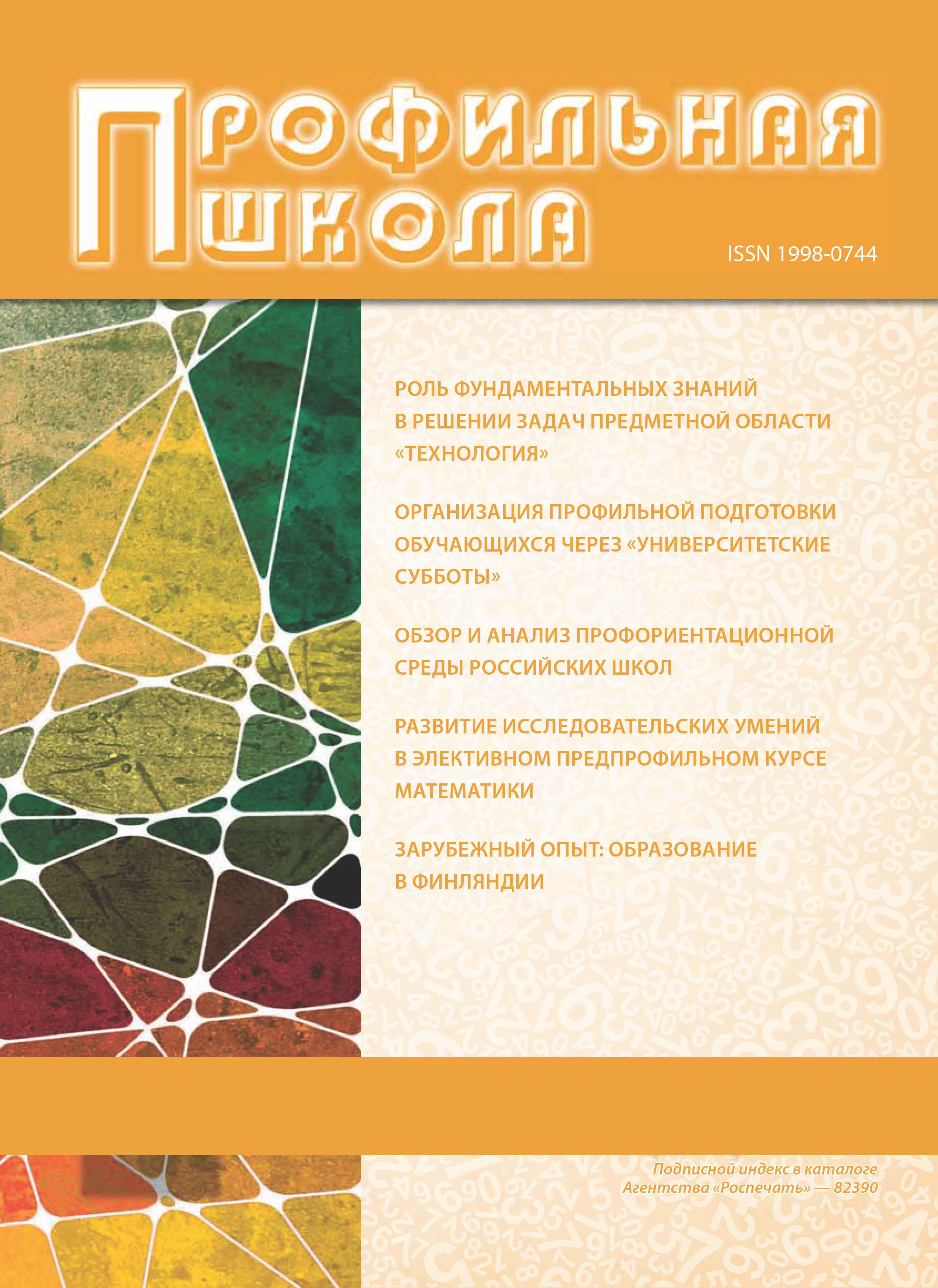The social order posed by the society to the training of highly qualified personnel for the strategic needs of the labor market is associated with the changes in the economy, including the processes of its computerization and digitalization. Transformations in the digital economy determine new requirements for specialists’ training, their competences and qualification. The rapid changes in socio-economic conditions cause the need to transform the system of vocational training in order to meet the demands for competencies that correspond to the current technologic trends and methods of production. The reforms of vocational education system can be significant in resolving contradictions between the quality of training, on the one hand, and public and employers’ demands, on the other hand. Close cooperation of professional educational institutions, employers and social partners through their joint design and development of teaching technologies and methods for advanced vocational training of qualified specialists can be considered as one of the most efficient factors and conditions for resolving the above mentioned contradictions. These new conditions have already been created in the Centers for Advanced Vocational Training (CAVT), which can be characterized as a new type of infrastructural solution to the problem of aggregation of advanced vocational training programs and material and technical resources owned by science, education, production. The article focuses on some features of interaction and cooperation among vocational educational institutions, employers and social partners (social and public-private partnerships, networking cooperation, educational and technological cluster), which are taken into account in the performance of the Center for Advanced Vocational Training of the Kemerovo region.
advanced training, forms and features of interaction, social and public private partnership, networking cooperation, educational and technological cluster, regional network for the development and implementation of advanced training programs
1. Vzaimodeystvie rabotodateley i obrazovatel'nykh uchrezhdeniy: real'nost' i perspektivy [Interaction between employers and educational institutions: reality and prospects]. Analiticheskiy otchet po materialam pilotnogo issledovaniya may - sentyabr' 2006 g. [Analytical report on the materials of a pilot study May - September 2006]. Moscow, 2006. 44 p.
2. Zinchenko G.P., Rogov I.I. Sotsial'noe partnerstvo [Social partnership]. Moscow: «Dashkov i Ko» Publ., Akademtsentr Publ., 2009. 224 p. EDN: https://elibrary.ru/QSYJED
3. Korneev E.P., Lysenko V.G. Operezhayushchaya podgotovka spetsialistov dlya innovatsionnogo sotsial'no-ekonomicheskogo razvitiya regionov [Advanced training of specialists for innovative socio-economic development of regions]. Profil'naya shkola [Profile school]. 2019, V. 7, I. 2, pp. 21-29. DOI: https://doi.org/10.12737/article_5caf00ce41ae89.98756426; EDN: https://elibrary.ru/MWYALM
4. Kyazimov K.G. Tendentsii razvitiya sistemy professional'nogo obrazovaniya i osnovnye napravleniya povysheniya kachestva professional'noy podgotovki vypusknikov UPO [Trends in the development of the vocational education system and the main directions of improving the quality of vocational training of UPE graduates]. Professional'noe obrazovanie i rynok truda [Vocational education and the labor market]. 2018, I. 2, pp. 4-10. EDN: https://elibrary.ru/XSMBIT
5. Lysenko V.G. Novye formy organizatsii proforientatsionnoy raboty Tsentra operezhayushchey professional'noy podgotovki s obuchayushchimisya [New forms of organizing vocational guidance work of the Center for Advanced Professional Training with students]. Sibirskiy uchitel' [Siberian teacher]. 2020, I. 3 (130), pp. 43-50. EDN: https://elibrary.ru/DRZLTX
6. Lysenko V.G. Organizatsionno-pedagogicheskie usloviya perenosa opyta Germanii na sistemu srednego professional'nogo obrazovaniya Rossii. Kand. Diss [Organizational and pedagogical conditions for transferring the experience of Germany to the system of secondary vocational education in Russia. Cand. Diss]. Kemerovo, 2017. 219 p. EDN: https://elibrary.ru/ESSCJF
7. Metodicheskie rekomendatsii po organizatsii obrazovatel'noy deyatel'nosti s ispol'zovaniem setevykh form realizatsii obrazovatel'nykh programm [Guidelines for organizing educational activities using network forms of implementing educational programs]. Prilozhenie k pis'mu Ministerstva obrazovaniya i nauki RF ot 28 avgusta 2015 g. I. AK - 2563 / 05 [Appendix to the letter of the Ministry of Education and Science of the Russian Federation dated August 28, 2015 No. AK - 2563/05]. Available at: https://minobrnauki.rf/dokumenty/9365.
8. Nikonenko S.G. Gosudarstvenno-chastnoe partnerstvo v sfere professional'nogo obrazovaniya [Public-private partnership in the field of vocational education]. Srednee professional'noe obrazovanie [Secondary vocational education]. 2016, I. 2, pp. 27-29. EDN: https://elibrary.ru/VSEWWH
9. Federal'nyy zakon ot 13.07.2015 № 224-FZ (red. ot 03.07.2016) «O gosudarstvenno-chastnom partnerstve, munitsipal'no-chastnom partnerstve v Rossiyskoy Federatsii i vnesenii izmeneniy v otdel'nye zakonodatel'nye akty Rossiyskoy Federatsii»: Prinyat Gosudarstvennoy Dumoy 1 iyulya 2015 goda. Odobren Sovetom Federatsii 8 iyulya 2015 goda [Federal Law No. 224-FZ dated July 13, 2015 (as revised on July 3, 2016) "On public-private partnership, municipal-private partnership in the Russian Federation and amendments to certain legislative acts of the Russian Federation". Adopted State Duma on July 1, 2015. Approved by the Federation Council on July 8, 2015]. Available at: http://www.consultant.ru/document/cons_doc_LAW_182660/
10. Lysenko V.G., Malakhova N.N., Milinis O.A., Nevzorov B.P., Nikolayev V.A., Pokhorukov O.Y., Rudneva E.L. (2019) Educational and Industrial Cluster as a form of Advanced Specialist Training. International Journal of Applied Exercise Physiologie, 8(2): 706.






